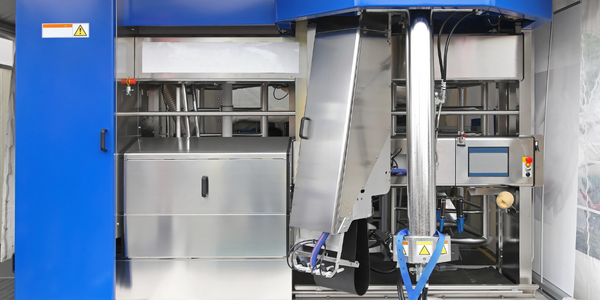Customer Company Size
Large Corporate
Region
- America
Country
- United States
Product
- Agworld platform
Tech Stack
- Data Analysis
- Data Management
- Cloud Computing
Implementation Scale
- Enterprise-wide Deployment
Impact Metrics
- Productivity Improvements
- Cost Savings
Technology Category
- Platform as a Service (PaaS) - Data Management Platforms
- Analytics & Modeling - Big Data Analytics
Applicable Industries
- Agriculture
Applicable Functions
- Discrete Manufacturing
- Logistics & Transportation
Use Cases
- Farm Monitoring & Precision Farming
- Supply Chain Visibility
- Predictive Maintenance
Services
- Data Science Services
- Cloud Planning, Design & Implementation Services
About The Customer
Hough Farms is located in Eastern Nebraska around the David City area. On 8,000 acres the Hough family grows corn and soybeans, both seed and conventional, as well as alfalfa and some cover crop rotations. They also run an 8,000 head feed yard and have a cattle herd of their own. Hough Farms is led by General Manager Jesse Hough, who runs the farm with a mix of staff consisting of both family as well as hired help. Jesse Hough grew up on the family farm, but after obtaining an accounting degree and becoming a CPA, worked as an agricultural accountant and financial advisor for nearly 20 years. Jesse worked with farmers on income tax planning, family business structure as well as profitability, profit centers and how they can manage their business more from a cost accounting standpoint.
The Challenge
Hough Farms was using a legacy farm management software but when that company was sold to a large input supplier, they wanted to ensure their farm data was stored with an independent party. They were also looking for a solution with better reporting capabilities to make data-driven decisions to help manage the business. The farm management system they had initially adopted was bought by a Big Ag company, which changed the stakes for them. They felt their data should be safe and secure with an independent party and realized their data would be used for different purposes that don’t necessarily align with their needs and preferences. At the same time, they also started to realize that this system didn’t really offer them the kind of reporting that they needed in order to make informed and data-driven decisions.
The Solution
After speaking to their financial services provider, K⋅Coe Isom, they decided to join them on the Agworld platform in order to achieve synergies and uninterrupted data flows to their accountant as well as improved internal communications. The Agworld platform can function as a workflow management system that helps them from budgeting all the way throughout the season. It also allows their team to double check that the right seeding rates are used, the right fertilizer is applied, the correct variable rate script is used and so on. Agworld is independently owned and does not use or sell their data, so they can rest assured that their data does not get used for anything that they haven’t consented to.
Operational Impact

Case Study missing?
Start adding your own!
Register with your work email and create a new case study profile for your business.
Related Case Studies.
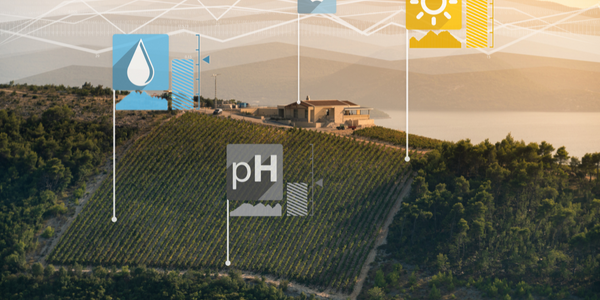
Case Study
Intelligent Farming with ThingWorx Analytics
Z Farms was facing three challenges: costly irrigation systems with water as a limited resource, narrow optimal ranges of soil moisture for growth with difficult maintenance and farm operators could not simply turn on irrigation systems like a faucet.
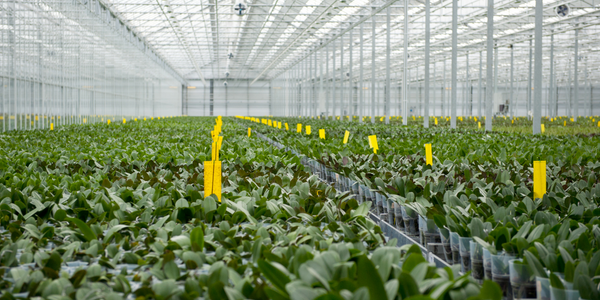
Case Study
Greenhouse Intelligent Monitoring and Control Solution
Farming Orchids is the most successful form of precision farming in Taiwan, and also the most exported flower. Orchids need a specific temperature and humidity conditions to grow and bloom, and its flowering time may not be in line with market demands, so the price collapses when there is overproduction. Therefore, some farmers began to import automated greenhouse control systems for breeding and forcing, which not only improves quality, but also effectively controls the production period and yield to ensure revenue. In 2012, an orchid farmer built a Forcing Greenhouse of about 200 pings (approximately 661 Square Meters) in Tainan, Taiwan. The system integrator adopted Advantech’s APAX-5000 series programmable automation controllers to build the control platform, coupled with Advantech WebAccess HMI/SCADA software, to achieve cloud monitoring. The staff of the orchid field can monitor important data anytime via smart phone, iPad, and other handheld devices, and control the growth and flowering conditions. System requirements: In the past, most environmental control systems of orchid greenhouses in Taiwan used PLCs (Programmable Logic Controller) with poorscalability and control, and could not be connected to the Internet formonitoring from the cloud. For advanced database analysis and networking capability, the PC platform must be adopted. Therefore, PAC Systems (Programmable Automation Controller) with both PLC programming capabilities andPC functions is a better choice.The environmental control of the Orchid greenhouse switches on and off devices like fan, shade net, cooling/heat pump, liquid flow control, water-cooling wall etc. It is controlled by a control panel of electric controllers, and is driven by a motor, to adjust the greenhouse temperature, humidity, and other environmental conditions to the set parameters.
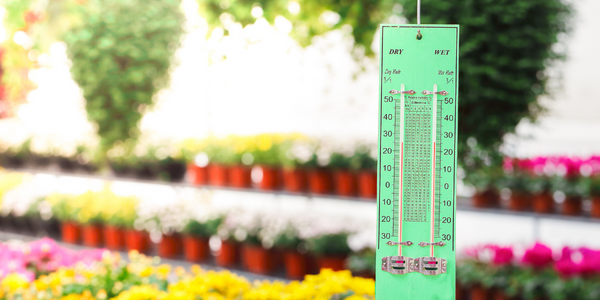
Case Study
Precision beekeeping with wireless temperature monitoring
Honeybees are insects of large economic value and provide a vital service to agriculture by pollinating a variety of crops. In addition, bees provide us with valuable products such as honey, beeswax, propolis, bee venom, etc. Monitoring of honeybee colony health, population, productivity, and environmental conditions affecting the colony health have always been exceedingly difficult tasks in apiculture. Research has shown that even small deviations (by more than 2°C) from the optimal temperatures have a significant influence on the development of the brood and the health of adult bees.
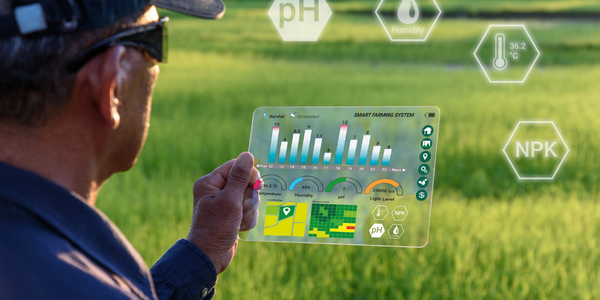
Case Study
Enabling Internet of Things Innovation in Agriculture
DigiBale, wanted to apply technology know-how and IP from implementations successfully to more agriculture sectors including cotton, forestry, sugarcane and cattle. However, farmers and growers still have worries about the connected technology.








